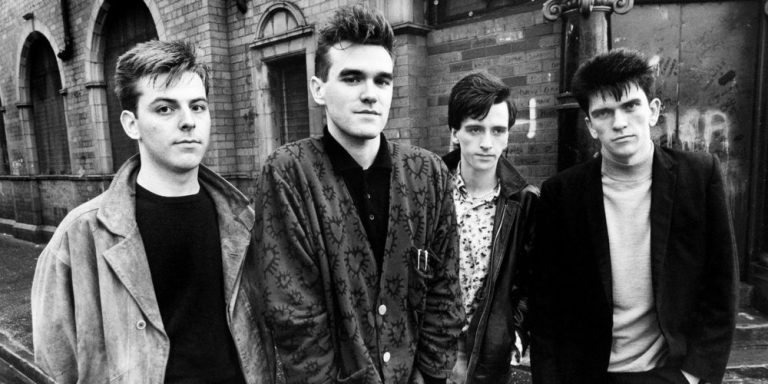The Smiths enjoyed such a tight, short, successful career that basically every song they committed to tape was released on an album, a single, or on one of the many compilations that were released: “Double-pack with a photograph, extra track and a tacky badge” as Morrissey dismissed such releases in ‘Paint A Vulgar Picture’.
While the scraps from each album’s recording period provide clues into the famously insular band’s creative process, there aren’t the reams of outtakes to pore over that most bands allow to pile up. The Smiths rarely recorded demos, too, which is why these early takes of the band’s most-loved songs provide the best insight we are able to glean outside of interviews about the band’s writing process; which aren’t really plentiful, given Morrissey’s reluctance to discuss the past and Marr’s anecdotes often resembling someone scrabbling to place the face of a girl he went to high school with.
Which is all to say: The Smiths released four albums within three-and-a-half years, the last one came out thirty years ago, and sometimes it’s hard to remember which cabinet head or effects pedal you were using when inspiration struck. Or which James Dean film you may have been referencing, as is the case with this song, which takes more than a few story cues from Rebel Without A Cause.
But we do have the early takes, which have leaked out through various Smiths and Morrissey bootleg trading sites over the years, with unofficial vinyl releases and forums dedicated to collecting and dissecting these alternative versions.
Nobody wants Morrissey to be smitten without the anguish – all the other bands were doing that.
Take one of what would become the band’s most well-known song: ‘There Is A Light That Never Goes Out’ contains all the gravity of the finished version, balanced by a more deft vocal touch by Morrissey. His delivery is marvellous, and it’s hard to understand why they felt the need to record further takes – it’s a little less dramatic than the finished version, and a lot less theatrical. The mix is a lot more pleasant too, with the sweeping synth violins — which Morrissey originally hated before being talked around by Marr — lower in the mix, allowing Morrissey’s voice to take centre stage where it belongs. With gladiola in back pocket, no doubt.
Love Music?
Get your daily dose of metal, rock, indie, pop, and everything else in between.
The real reason to listen to this version, and perhaps for the vocal re-take too, is at the apex, when Morrissey sings “There is a light in your eyes and it never goes out” – a small lyrical change which shifts the meaning of the song to something less ambiguous, more traditionally romantic, and ultimately less satisfying. Nobody wants Morrissey to be smitten without the anguish – all the other bands were doing that. The Smiths always ran their own weird race, and the pleasure, the privilege was ours.


































